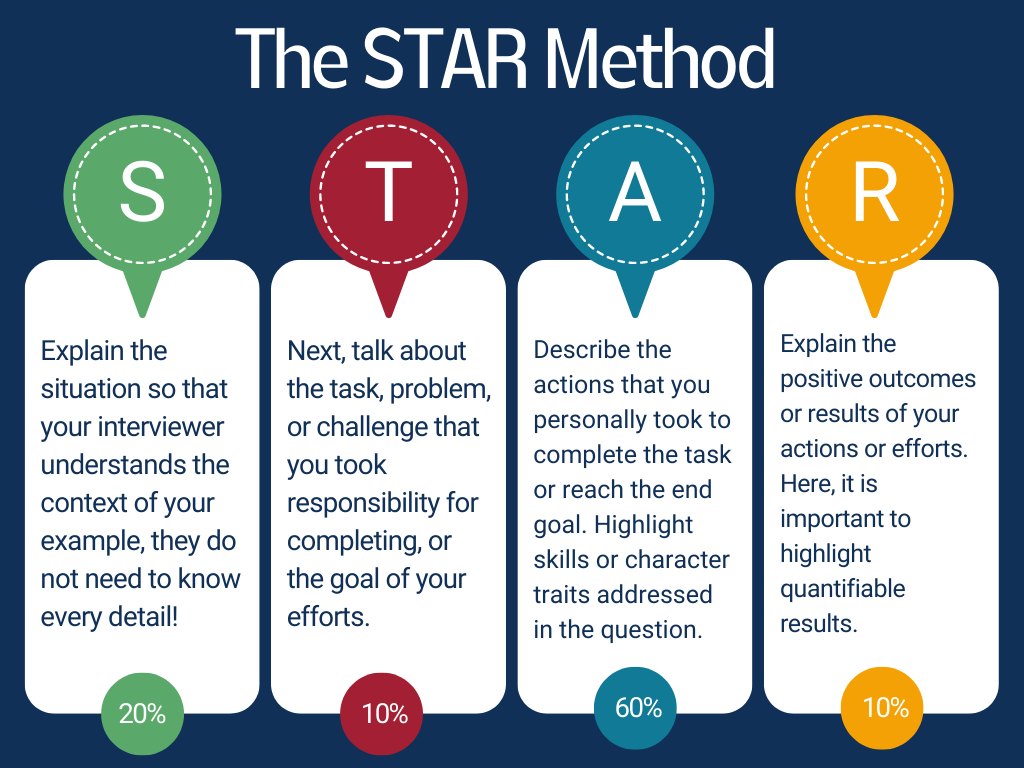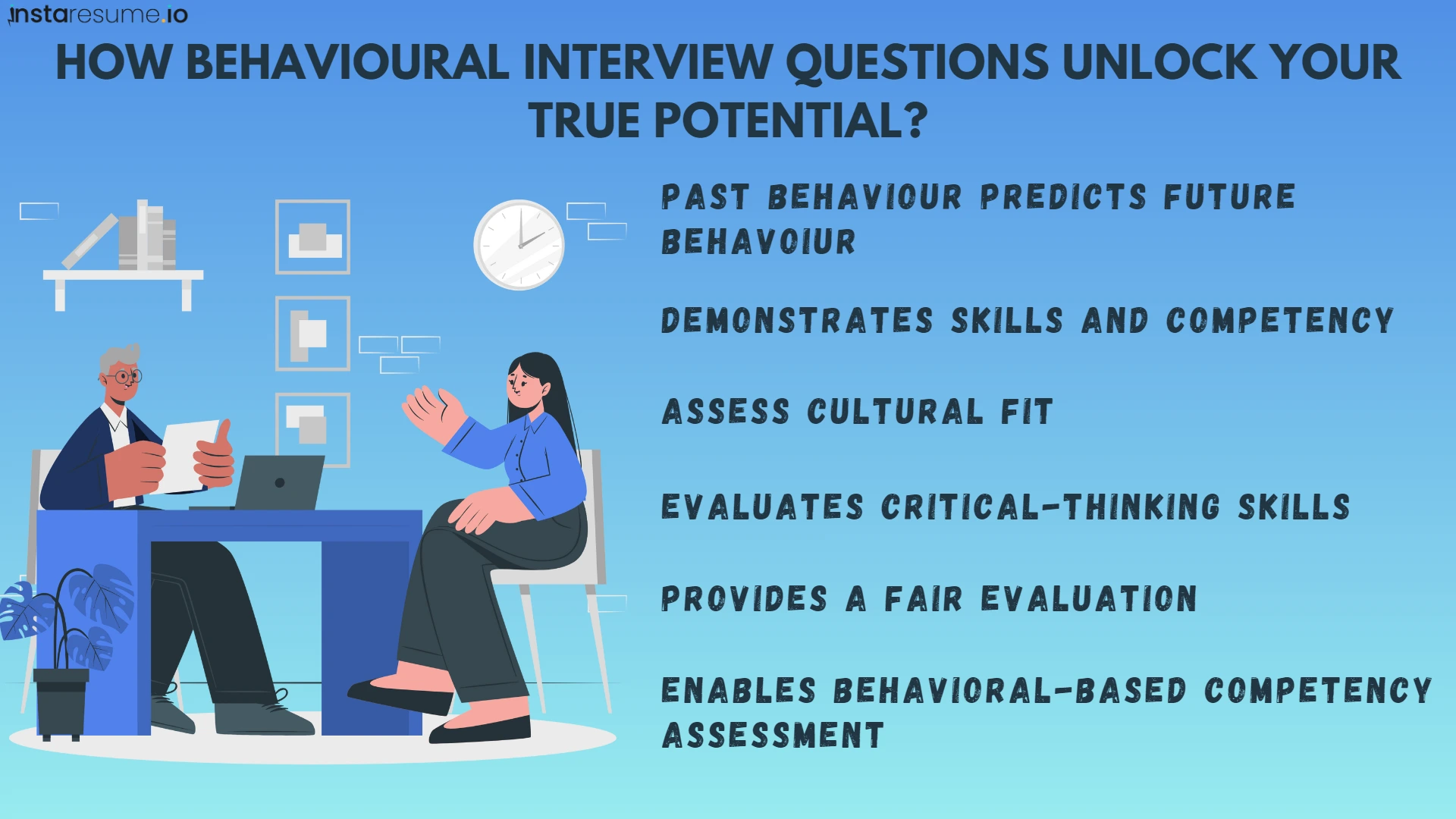Ever wondered why some candidates shine brightly in interviews while others fumble? The secret often lies in their adept handling of behavioral interview questions. These questions, designed to uncover past behaviors as predictors of future performance, can be a make-or-break aspect of the interview process.
Mastering these questions requires understanding their roots in psychological theories of behavior prediction. A study by LinkedIn reveals that 63% of hiring managers consider soft skills, often assessed through behavioral questions, just as critical as hard skills. Therefore, refining techniques such as the STAR method (Situation, Task, Action, Results) can dramatically enhance your interview performance and career trajectory.

The Essence of Behavioral Interview Questions
Behavioral interview questions aim to predict future behavior based on past experiences. They are structured to elicit detailed responses about how candidates handled various situations. This type of questioning can reveal a lot about a candidate’s skills and behavior.
For instance, candidates might be asked, “Can you tell me about a time you faced a challenge at work?” These questions require thoughtful answers that detail specific examples. Employers use these questions to assess problem-solving skills, teamwork, and adaptability.
Understanding the structure of behavioral questions is crucial. They typically start with phrases like “Tell me about a time when…” or “Describe a situation where…”. This helps candidates provide a focused response.
Preparing for these questions involves thinking about past experiences that highlight relevant skills. Using the STAR method can help structure these responses effectively. Having a solid preparation strategy can make a big difference in the outcome of an interview.
BEHAVIOURAL Interview Questions \u0026 Answers! (The STAR Technique for Behavioral Interview Questions!)
The Importance of Behavior-Based Interviewing
Behavior-based interviewing is crucial for employers to understand a candidate’s past behavior. This method helps predict how candidates might perform in future roles. Employers use these interviews to measure soft skills, like teamwork and problem-solving.
This technique is grounded in the idea that past behavior is the best predictor of future behavior. By examining how candidates handled real-life situations, employers can gather valuable insights. This method can significantly reduce hiring risks.
Companies find that behavior-based interviews are more reliable than traditional interviews. They can ask candidates to provide specific examples of their skills and experiences. This provides a clear picture of the candidate’s abilities.
Let’s explore more on the structure, advantages, and challenges of behavior-based interviewing.
Structure of Behavior-Based Interviewing
Behavior-based interviewing follows a standardized process. Questions are designed to elicit detailed responses rather than yes or no answers. The goal is to collect concrete examples of past experiences.
Interviewers often use the STAR method to frame their questions. This helps candidates provide structured responses. With this method, answers are easy to understand and evaluate.
It’s essential to ask questions that align with the job requirements. This ensures that the interview provides relevant information. A well-structured interview can identify the most suitable candidate for the role.
Advantages of Behavior-Based Interviewing
This interviewing method offers several benefits. It provides a deeper understanding of a candidate’s capabilities. Employers can make more informed hiring decisions.
Behavior-based interviews reduce biases in the hiring process. Structured questions ensure that all candidates are evaluated on the same criteria. This leads to a fairer assessment of skills and abilities.
This approach also allows for better comparison between candidates. With clear examples, it’s easier to see who has the most relevant experience. Candidates with practical experience often stand out.
Challenges of Behavior-Based Interviewing
Despite its benefits, behavior-based interviewing has challenges. It requires thorough preparation from both the interviewer and the candidate. Interviews can be more time-consuming due to the detailed answers required.
Some candidates might struggle with recalling specific instances from their past. This can result in incomplete or less insightful responses. It’s crucial to provide adequate preparation guidelines to candidates.
Interviewers must also be trained to ask the right questions. Poorly framed questions can lead to ambiguous answers. Ensuring all interviewers are skilled is key to the success of this method.
Behavioral Interview Strategies for Candidates
Preparing for behavioral interviews involves reflecting on past experiences. Think about work situations where you demonstrated key skills. This helps you provide specific and relevant examples during the interview.
Using the STAR method can make your answers more structured. STAR stands for Situation, Task, Action, and Result. This method helps you organize your thoughts and deliver clear responses.
Practice answering common behavioral questions. Rehearse with a friend or mentor to get feedback.
- Describe a time you worked in a team.
- Explain a situation where you overcame a challenge.
- Talk about a time when you had to meet a tight deadline.
It’s also essential to remain calm and confident during the interview. Take a moment to think before you answer a question. This will help you provide thoughtful and detailed responses.
Common Behavioral Interview Questions and How to Answer Them
Behavioral interview questions often explore past experiences to gauge future performance. A common question is, “Can you tell me about a time you faced a conflict at work?” This question aims to understand your conflict-resolution skills.
When answering, use the STAR method. Describe the Situation and Task briefly, explain the Action you took, and highlight the Results. This structured approach ensures you provide a clear and concise answer.
Another frequent question is, “Describe a time when you had to meet a tight deadline.” Here, employers want to assess your time management and stress-handling abilities. Provide a specific example where you successfully managed to meet the deadline despite challenges.
Employers might also ask, “Give me an example of a goal you set and how you achieved it.” This question focuses on your goal-setting and problem-solving skills. Make sure to include any steps you took to overcome obstacles.
To prepare, think about various scenarios you have experienced. Consider situations involving teamwork, leadership, and adaptability. Having a few examples ready can make your responses more impactful.
Practicing these common questions can help you feel more confident. This will enable you to deliver strong, specific answers during your interview.
- How do you handle constructive criticism?
- Describe a time you went above and beyond at work.
- Tell me about a time when you had to learn something quickly.
Improving Your Behavioral Interviewing Skills
Enhancing your skills for behavioral interviews starts with practice. Rehearse your answers to common questions using the STAR method. This helps you organize your thoughts and provide structured responses.
Recording yourself during practice sessions can be beneficial. It allows you to review your answers and body language. This can help you identify areas for improvement and increase your confidence.
Seeking feedback from others is also valuable. Friends or mentors can provide insights into how you can refine your answers. Constructive criticism can help you polish your skills.
To boost your interviewing skills, consider the following tips:
- Research the company beforehand to tailor your responses.
- Practice active listening during the interview to understand the questions fully.
- Highlight specific examples that demonstrate your strengths.
Another useful strategy is to maintain a calm and composed demeanor. Taking a moment to think before answering can lead to more thoughtful responses. This shows the interviewer that you are careful and deliberate in your communication.
Finally, being honest and authentic is essential. Interviewers can tell when answers are rehearsed or insincere. Genuine responses can help build rapport and leave a positive impression.

How to Answer Behavioral Interview Questions Sample Answers
Wrapping Up Behavioral Interview Preparation
Mastering behavioral interview techniques requires practice and strategy. By understanding the essence and importance of these questions, you can better prepare yourself. Utilizing the STAR method and seeking feedback will help refine your skills significantly.
Confidence and authenticity play key roles in delivering strong responses. Stay composed, be honest, and focus on providing structured and detailed examples. Following these strategies will help you excel in any behavioral interview setting.